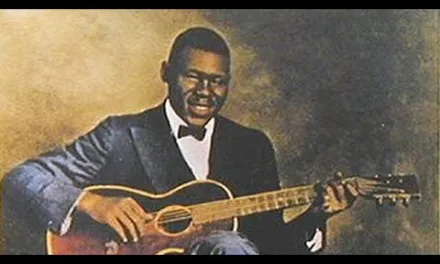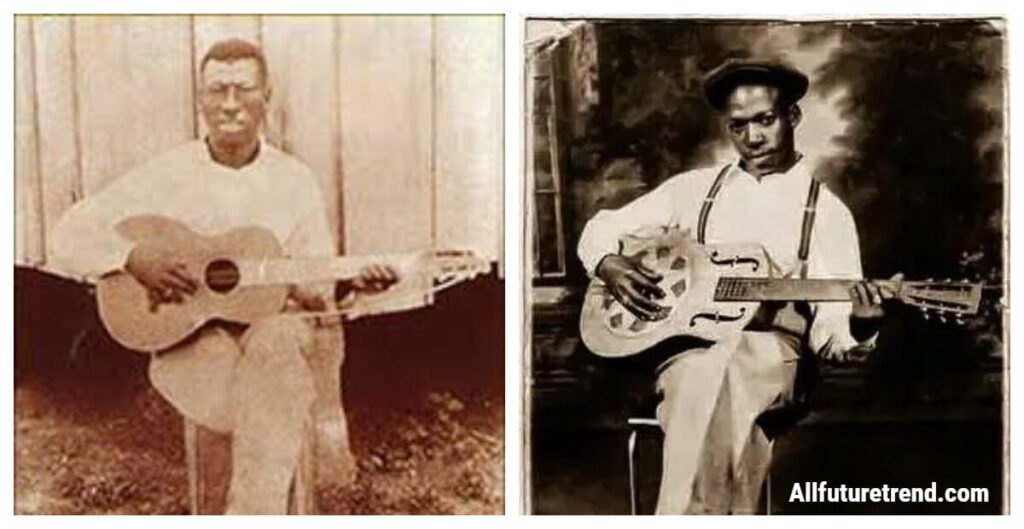Willie Brown, a name that resonates with the rich history of blues music, left an indelible mark on the genre. Born in 1900, his soulful guitar riffs and captivating voice captivated audiences long before his untimely passing. As fans remember him for his contributions to music, there’s one question that lingers: what led to Willie Brown’s death? Exploring his life reveals not only the cause but also the vibrant legacy he created as an artist.
Join us as we delve into the story of Willie Brown—the man behind the music—and uncover details about both his career and personal journey.
Who Was Willie Brown ?
Willie Brown was born on August 6, 1900, in the heart of Mississippi. This small-town boy would go on to become a pivotal figure in the blues genre. His upbringing in the deep South exposed him to a diverse range of musical influences.
From an early age, he was surrounded by folk songs and spirituals that infused his artistry with authenticity. As he grew older, Willie honed his skills as a guitarist and singer.
He quickly developed a style that set him apart from his contemporaries. With smooth vocals and intricate guitar work, Willie captivated audiences wherever he performed.
His journey brought him into collaboration with notable musicians like Son House and Robert Johnson. These partnerships enriched his sound and expanded his reach within the music community. Through hard work and passion, Willie Brown emerged as a legendary figure whose influence continues to resonate today.
Willie Brown Cause Of Death

Willie Brown’s life came to a tragic end on December 30, 1952. He was only 52 years old when he succumbed to heart disease in Tunica, Mississippi.
This sudden loss shocked many who loved his music. Heart disease often strikes unexpectedly and can take the brightest talents away from us too soon.
Despite the sorrow surrounding his death, Brown’s contributions to blues music continue to resonate. His influence remains alive through countless artists inspired by his work.
The impact of losing such a remarkable musician is felt even today. Willie Brown’s legacy lives on in the hearts of blues enthusiasts everywhere.
Early Life and Education
Willie Brown was growing up in a musical environment, he showed an early interest in blues and folk music.
His educational journey began at local schools where he was introduced to various instruments. Willie often played with neighborhood friends and learned the nuances of rhythm and melody.
After completing high school, his passion for music led him to pursue further studies at the University of Southern Mississippi. Here, he honed his craft and developed a deeper understanding of musical theory.
This solid foundation set the stage for his future career as a renowned musician. It equipped him with skills that would later influence generations of artists in the blues genre.
Career and Achievements

Willie Brown was a prominent figure in the blues genre, known for his distinct style and powerful voice. His career took off during the 1920s when he began recording with several notable labels.
He became famous for contributing to the Delta blues sound, characterized by its emotional depth and authenticity. Brown’s ability to weave poignant stories into his music captivated audiences across the United States.
One of his most significant achievements was collaborating with other legendary musicians, such as Robert Johnson. Their work together helped shape the future of blues music.
Brown’s songs often reflected themes of love, heartache, and life struggles. Tracks like “Future Blues” showcased not only his talent but also set a standard for aspiring artists in the genre.
His influence extended beyond just recordings; Willie Brown remains an inspiration for countless musicians who followed in his footsteps.
Personal Life and Relationships
Willie Brown’s life was enriched by his relationship with Josie Mills. Their bond was more than just a marriage; it was a partnership that supported both their personal and professional lives.
Josie understood the demanding nature of Willie’s music career. She often inspired him during difficult times, providing stability amid the chaos of fame. Together, they navigated the ups and downs that came with being in the spotlight.
Their home life reflected their deep connection. Music filled their space, creating an atmosphere where creativity thrived. While details about Josie’s life are scarce, her influence on Willie’s work is undeniable.
As time passed, they faced challenges like any couple would. Yet through it all, Josie’s unwavering support remained a cornerstone for Willie as he pursued his passion for music. This dynamic duo showcased how love can flourish amidst life’s trials.
Legacy
Willie Brown’s musical journey left an indelible mark on the blues genre. His soulful voice and masterful guitar skills influenced countless musicians who followed in his footsteps. Even after his passing, his work continues to resonate with fans around the world.
Brown’s songs, characterized by their emotional depth and storytelling ability, have been covered and celebrated by various artists throughout the decades. His legacy lives on not only through recordings but also through those he inspired to pick up a guitar or write their own music.
The impact of Willie Brown extends beyond just his contributions as a musician; he is remembered as a pioneer who played a crucial role in shaping blues music into what it is today. As we reflect on Willie Brown’s cause of death—heart disease at the age of 52—we are reminded that while life may be fleeting, artistry can endure forever.
His story serves as both an inspiration and a reminder of the fragility of life. Through every note strummed and every lyric penned, Willie Brown remains an essential figure in American music history. Today, audiences continue to discover his songs, ensuring that this talented musician will never be forgotten.
You Might Also Like
Karen Velez Majors Cause Of Death
Austin Funk Cause Of Death
Bill Hewitt Cause Of Death
Who Was Padre Pio? And His Cause Of Death.
Who Was Tim Buckley? And His Cause Of Death


